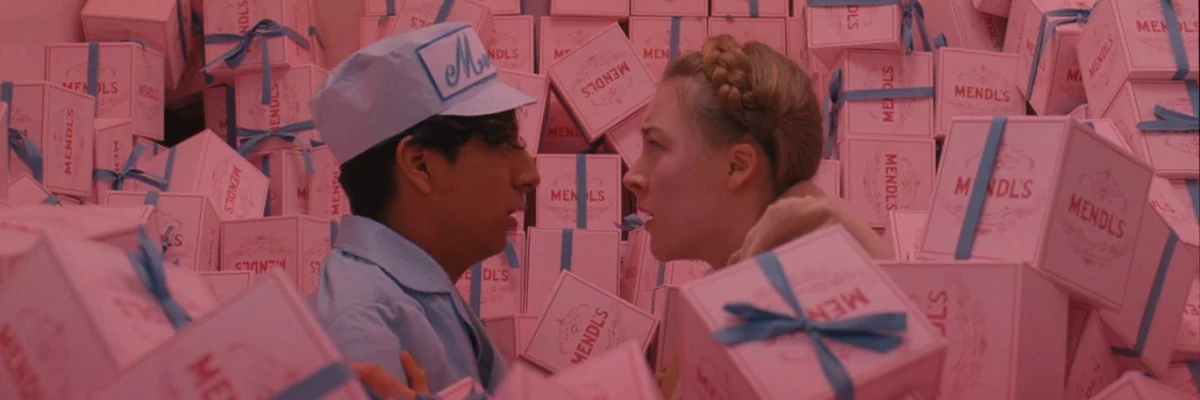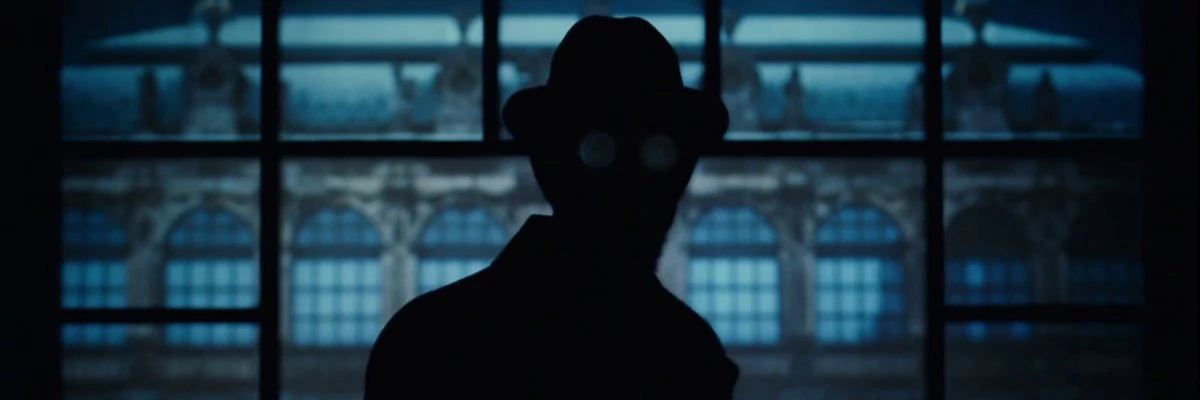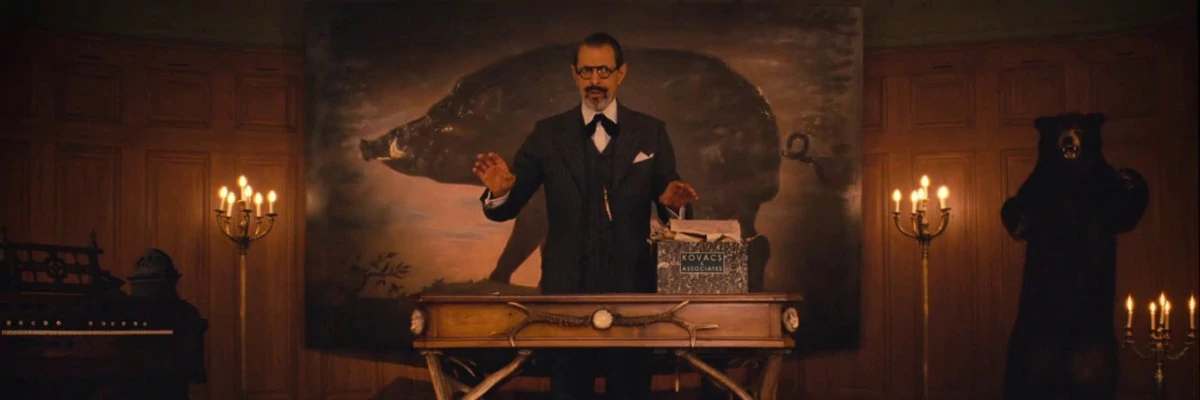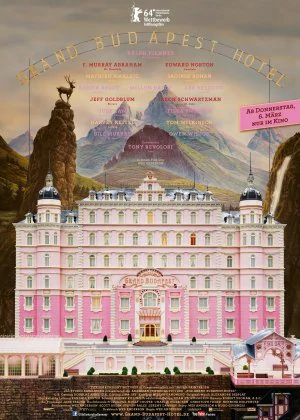The Grand Budapest Hotel
Take heed, Wes Anderson is back in town. The Grand Budapest Hotel is the latest entry in his impressive oeuvre. His latest film is a culmination and extrapolation of everything that makes Wes Anderson great, which, at least for some, will probably also be the film's downfall. Not for me though, I thoroughly enjoyed The Grand Budapest Hotel from start to finish, making it without a single shred of a doubt my favorite Anderson film so far.

Wes Anderson is one of those rare directors who seem to get better which each film. Notwithstanding a few minor setbacks (Moonrise Kingdom was a small step back from Fantastic Mr. Fox) Anderson has been refining his style with each new film he releases. The Grand Budapest Hotel is a comprehensive collection of everything that makes Anderson's films worthwhile, in exchange for a little less drama and a slightly more cartoonesque storyline.
One of the stand-out elements of The Grand Budapest Hotel is the use of animation. It's not the first time Anderson uses miniature/puppet animation in his live-action films, but never before did he tie the two so tightly together. The miniature sets look incredibly life-like, while the live-action sequences look almost as if they were made using stop-motion animation. It's a rich visual treat that makes the film even more cartoonesque, yet it also feels as if Anderson finally reached the point in his career where he wanted to be all along. It suits him (and his films) so well that it's hard to imagine him ever doing anything different again.
The plot is a pretty convoluted piece of storytelling that is slightly reminiscent of something like Allo Allo. The European war setting, the story of a stolen painting, and a cast of half-dimwitted characters make for a valid comparison, but luckily that's where the comparison ends. While The Grand Budapest Hotel's plot isn't going to win it any big prizes (it's merely a hook for Anderson's unique style and sense of humor), there is a vividness that keeps its momentum going.

Visually it's by far his best film to date. From the very beginning, it is obvious that Anderson put a lot of time and effort into even the smallest of details. The use of a smaller screen ratio during the flashback scenes may have been a little unnecessary (and a small hindrance to the many magnificent symmetric shots), but that's my only complaint really. Superb camera work, charming visual effects, and amazing use of color make for a visual marvel.
The soundtrack too is perfectly tailored to Anderson's vision. It's an upbeat, at times almost fairytale-like collection of songs, underlining the light-hearted and loosely structured nature of the film, edited with minute perfection. The one scene that stands out is the museum chase, where the soundtrack becomes fully part of the movie to create one of the funniest scenes in the film. Outside the context of The Grand Budapest Hotel, the music might be considered tame, but it is applied with such stunning perfection that it brings the film to life.
Anderson reduces most of his regular cast to cameos and picks a few fresh faces to work his magic on. Ralph Fiennes and Tony Revolori shine as the film's central duo, Edward Norton, Adrien Brody and Willem Dafoe (him in particular) are splendid in their secondary roles. Apart from the regular cameos (Murray, Wilson, Schwartzman) extra credit goes to Tilda Swinton (almost didn't recognize her) and Harvey Keitel for their nifty performances. Everybody's clearly in on the joke and, as is often the case, that translates well to the screen.

The Grand Budapest Hotel is a full-blown comedy that grows more silly and grotesque by the minute. The hike up the mountain and the Winter Games descent belong to the strangest scenes Anderson ever directed, but at the same time, they're also some of the best moments of his career. It will leave certain people craving a little more humanity and realism in this film, others will wallow in its outrageous sense of joy and wonder. It's a clear trade-off, but one that was necessary for Anderson to truly flourish.
The Grand Budapest Hotel may not be laugh-out-loud funny for the most part of its running time, it left me with a big, wide grin on my face. There are so many priceless moments, so many memorable scenes, and plenty of amazing details that make the film that much better. The Grand Budapest Hotel is Anderson at his very best. You can only wonder where he goes from here, but those are worries for later. For now, it's enough to savor this little gem and to make sure enough people watch it, so Anderson can spend another three years tinkering away on his next one.
